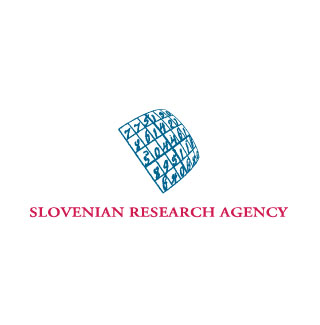Projects
The purpose of the investment project BTH-NIB is the assurance of the appropriate infrastructural conditions for the use of research and developmental opportunities in the fields of operation of the NIB.
Play Video About project Publication
Development of novel technologies ofr detection, quantification and characterisation of bacteriophages
Project coordinator: dr. Aleš Štancar, Bia Separations
Coordinator for NIB: dr. Tanja Dreo
Code: L7-5534
Duration: 1.8.2013 - 31.7.2016
Abstract
Antimicrobials are a essential to sustain human, animal and plant health and welfare. Infectious and zoonotic diseases have been sucessfully treated by antibiotics since their discovery. However, over several decades bacteria have become resistant to each new antibiotic and developed into a world wide health threat. Mortality due to resistant infections in Europe is high and exceeds 25 000 deaths per year and health care costs of nonfatal diseases account for 1,5bilion euros per year. New antibiotics and novel, sustainable antimicrobial strategies are needed. Phage therapy is one of the most attractive and verified approaches up to date. In order to get authorisation for new antimicrobial agent, regulatory requirements have to be fulfilled. These requests will apply to assure the identity, biological activity, purity and quality of bacteriophage-drug products when used for humans. Efficient monitoring system and methods for production and formulation would facilitate approvals by authorithies for new antimicrobials. Main goal of the proposed project is development of new methods for detection, quantification and quality control of phages in phage based products. New technologies will exploit physical, chemical and biologically properties of phages. In the proposed project we will develop chromatographic method for fast and efficient monitoring of total number of phages. This parameter will be monitored also by newly developed microgravimetric method that exploits mechanical resonance of piezoelectric single-crystalline quartz to measure weight. In addition a novel infectivity test will be developed on basis of detection of early response of bacteria to phage attack. All above mentioned methods will be implemented in production proces of phage based products. We will use phages of human pathogen Campylobacter jejuni and plant pathogen Pectobacterium cypripedii as model organisms. Bacteria of the genus Campylobacter are most frequent agents responsible for human enteric diseases in Europe and developed world in general. While efficacy of phages against Campylobacter was already confirmed on animals, no human trial was performed until today. Pectobacterium cypripedii causes brown spot on orchid plants and each year there has been severe economical losses due to this disease. Phages has already shown a potential for treatment of plant pathogens before, but not brown spot. The interdisciplinary project team will include researches with complementary knowledge and know-how in order to achieve project goal. Collaborators are coming from Laboratory for Bioanalyctis from Center of Excellence for Biosensors, Instrumentation and Process Control (Co BIK), Laboratory for Biocybernetics from Faculty of Electrical Engineering and Department for Microbiology and Microbial Biotechnology, Biotechnical faculty, both from University of Ljubljana, National Institute of Biology, Department for Biotechnology and Sytems Biology (NIB) and international project partner Purdue university. Project co-investor is high tech company BIA Separations, producer of monolithic chromatographic columns optimized for purification of large biomolecules and viruses.


 Scope of NIB's accreditation is given in the Annex to the accreditation certificate and in the List of accredited methods for detection of GMOs and microorganisms – plant pathogens
Scope of NIB's accreditation is given in the Annex to the accreditation certificate and in the List of accredited methods for detection of GMOs and microorganisms – plant pathogens 
